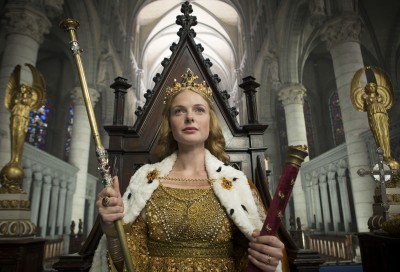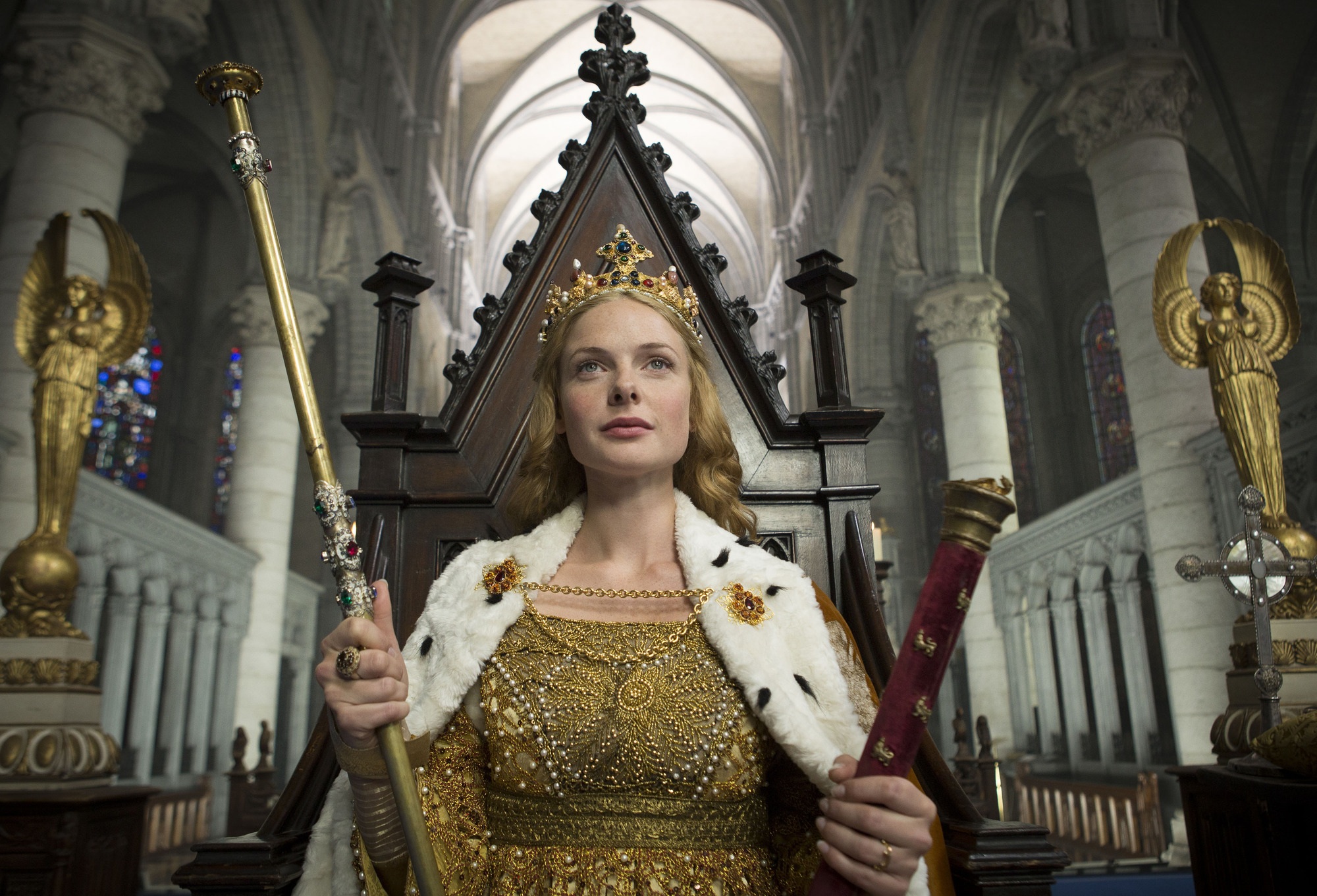
BBC One historical drama, The White Queen is nearing its finale in the UK and has just begun in the US on the Starz Premium Cable Channel. It is based on the best selling novel series, The Cousins’ War, written by Philippa Gregory, and set during the Wars of the Roses; a long drawn out battle between the houses of York and Lancaster for the throne of England.
What is perhaps the only unique trait of the series is its attempt to portray events through the trials and tribulations of the women, as opposed to the heavily favoured male perspective. Gregory claims that women “are being given a sense of their gender’s history. History for men is very well written,” and “her story is something that is coming now.” Unfortunately, a more troubling issue overshadows this rare trait. Within each episode, so many tragedies and conflicts have both risen and been resolved it is difficult to become invested in a continuous storyline. Just as soon as a revolt is announced, it is avoided, and shortly after the Queen becomes pregnant, we watch her prance through the halls of her castle years later with three little children in tow. The viewer is hardly given the time to form an opinion on such matters because they are so quickly cast aside and replaced by new circumstances. Illness or battle takes the life of a key character more than once, and within a single episode, and thus the element of suspense is removed. Without suspense, a drama loses all of its sustenance. Not to mention there is constantly a new candidate for the throne, and old candidates are cast aside just as quickly.
Since becoming invested in this show’s plot is a daunting task, one must turn to the performances to draw pleasure from this period piece. Luckily, there is some noteworthy acting to acknowledge. The beautiful Rebecca Ferguson captivatingly reincarnates the White Queen herself, King Edward IV’s Queen Elizabeth Woodville, and the actress actually has some real similarities to her character. When asked about her journey onto the show, Ferguson states that she had always wanted to do a period piece but “being thrown into it so quickly was sort of being hit by a truck as well.” She continues to comment on the sudden leap in her career: “It was a lot of work, well it was for me not doing that much before into having a lead role.” Thus both Ferguson and her character are pulled from simple beginnings into big roles that may define them.
Ferguson also weighed in on the debate between Kings and Queens and which may be the better ruler by claiming, “We [women] attack it from a different angle” and “for us it’s family, it’s emotion, it’s safety of a throne.” Having a 6-year-old son herself, Ferguson can certainly relate to the inclination to put family first.
Another leading lady steals the spotlight and gives this drama its necessary dose of tragic passion: Amanda Hale as Lady Margaret Beaufort. Hale is no stranger to the period piece. She played similar roles in both Ripper Street and The Crimson Petal and the White, but proves in The White Queen that she was cast for a reason. Her desperate mannerisms, painfully piercing eyes, and steadfast religious security makes every scene she is in her own personal showcase. She is captivating in her role, and perfectly personifies the very disturbed, “hanging by a thread” emotions of a mother gone partly mad for the love of her son, a cause, and God himself. Margaret is unafraid of battlegrounds, men, and the enemy, but is injected with the fear of God, and it makes for great performances by Hale.
Philippa Gregory comments specifically on Hale’s character, Margaret Beaufort and just how perfectly she portrays the reality that Gregory hoped to reveal with her stories. Gregory states that a good woman was defined as “obedient to God, obedient to her husband, and obedient to her father.” Interestingly enough, Gregory points out that “ What we actually see, if you look at the record of what women were doing, is that they were doing a lot of subterfuge, they were using a lot of secret influence.” She goes on to explain that a rebellion in England known as the Buckingham Rebellion was, at the time, fittingly referred to as the Beaufort Rebellion, because all knew that Margaret Beaufort had both planned, and set it in motion. Thus, Hale and her character are not only a key source of entertainment on the show, but also represent a revealed truth about women of the time.
Philippa Gregory has spoken of a second season to be called The White Princess, a continuation of the story that revolves around the daughter of Elizabeth Woodville who went on to marry the first Tudor King, Henry VII. Gregory tells us that a script is currently in the works, and is based on her book of the same name as the future episodic.
